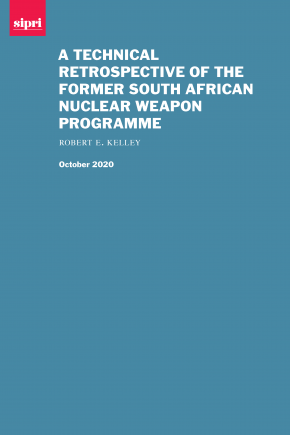A Technical Retrospective of the Former South African Nuclear Weapon Programme
Much has been written about South Africa’s nuclear weapon programme. But none of it has previously drawn on the knowledge and skills of a US nuclear weapon engineer who examined in person the technical aspects of the programme. That engineer—Robert E. Kelley—has now given a detailed account of how engineers, physicists, policymakers and the military worked on the programme—often at cross purposes and without coordination. The result was a nuclear weapon programme that succeeded in producing credible nuclear explosives but for little purpose and too late.
The end of the South African programme is often attributed to the looming end of apartheid. While that was clearly a factor, Kelley shows how internal competition and an inability to execute the task on time also prompted the government to give up its nuclear weapons.

